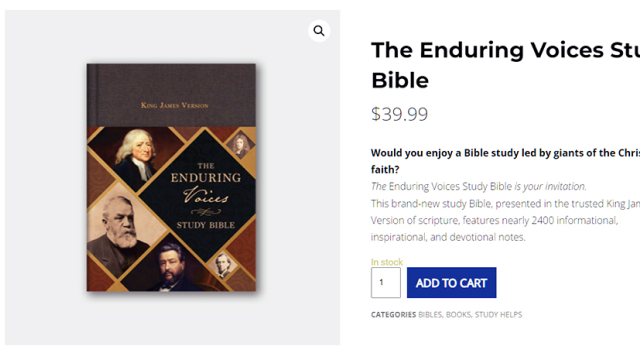The petrodollar system originated during the Yom Kippur war in 1973 when the US, facing economic challenges and an oil embargo, struck a deal with Saudi Arabia.
One of the main things that gives the United States global dominance is the fact that the US dollar is the world’s reserve currency. In 1973, the Petro Dollar System was established with Saudi Arabia, giving payment in US dollars to oil-exporting nations. The petrodollar system replaced gold as the standard of value and helped the US maintain its dominance in international trade. Now Mohammed bin Salman has pulled the plug on the whole thing by not renewing its contract with the United States. From a global perspective, there are few bigger stories right now than this one, this is huge.
“There is treasure to be desired and oil in the dwelling of the wise; but a foolish man spendeth it up.” Proverbs 21:20 (KJB)
In June 1974, the US and Saudi Arabia signed an 80-year petrodollar deal that was a key part of US global economic influence. Four days ago, that deal was scrapped by Mohammed bin Salman, potentially throwing the global financial order into chaos. From this point on, the move to CBDC is officially underway, and it will be a race to see who is able to corner that market. Saudi Arabia has made their intentions quite clear. Digital money is the currency of the future, and that future starts right now.
Saudi Arabia’s petro-dollar exit: A global finance paradigm shift
FROM THE BUSINESS STANDARD: Originally signed on 8 June 1974, the deal established two joint commissions, one based on economic cooperation and the other on Saudi Arabia’s military needs. At the time, it was said that it heralded an era of close cooperation between the two countries, says Katja Hamilton of BizCommunity.
American officials at the time expressed optimism that the deal would motivate Saudi Arabia to ramp up its oil production. They also envisioned it as a blueprint for fostering economic collaboration between Washington and other Arab countries.
The crucial decision to not renew the contract enables Saudi Arabia to sell oil and other goods in multiple currencies, including the Chinese RMB, Euros, Yen, and Yuan, instead of exclusively in US dollars. Additionally, the potential use of digital currencies like Bitcoin may also be considered.
This latest development signifies a major shift away from the petrodollar system established in 1972, when the US decoupled its currency from gold, and is anticipated to hasten the global shift away from the US dollar.
In a more recent move, Saudi Arabia has announced its involvement in Project mBridge, a project which explores a multi-central bank digital currency (CBDC) platform shared among participating central banks and commercial banks. It is built on distributed ledger technology (DLT) to enable instant cross-border payments settlements, and foreign-exchange transactions.
The project has more than 26 observing members including the South African Reserve Bank, which was greenlighted as a member this month.
The better known observing members of mBridge are those of the Bank of Israel, Bank of Namibia, Bank of France, Central Bank of Bahrain, Central Bank of Egypt, Central Bank of Jordan, European Central Bank, the International Monetary Fund, the Federal Reserve Bank of New York, the Reserve Bank of Australia, and the World Bank.
In tandem, the project steering committee has created a bespoke governance and legal framework, including a rulebook, tailored to match the platform’s unique decentralised nature.
Project mBridge is the result of extensive collaboration starting in 2021 between the BIS Innovation Hub, the Bank of Thailand, the Central Bank of the United Arab Emirates, the Digital Currency Institute of the People’s Bank of China and the Hong Kong Monetary Authority.
In 2022, a pilot with real-value transactions was conducted. Since then, the mBridge project team has been exploring whether the prototype platform could evolve to become a Minimum Viable Product (MVP) – a stage now reached. As it enters the MVP stage, Project mBridge is now inviting private-sector firms to propose new solutions and use cases that could help develop the platform and showcase all its potential. READ MORE
Now The End Begins is your front line defense against the rising tide of darkness in the last Days before the Rapture of the Church
- HOW TO DONATE: Click here to view our WayGiver Funding page
When you contribute to this fundraising effort, you are helping us to do what the Lord called us to do. The money you send in goes primarily to the overall daily operations of this site. When people ask for Bibles, we send them out at no charge. When people write in and say how much they would like gospel tracts but cannot afford them, we send them a box at no cost to them for either the tracts or the shipping, no matter where they are in the world. We have a Gospel Billboard program. We are now broadcasting Bible studies, Podcasts and a Sunday Service 5 times a week, thanks to your generous donations. All this is possible because YOU pray for us, YOU support us, and YOU give so we can continue growing.
But whatever you do, don’t do nothing. Time is short and we need your help right now. The Lord has given us an open door with a tremendous ‘course’ for us to fulfill that will create an excellent experience at the Judgement Seat of Christ. Please pray for our efforts, and if the Lord leads you to donate, be as generous as possible. The war is REAL, the battle HOT and the time is SHORT…TO THE FIGHT!!!
“Looking for that blessed hope, and the glorious appearing of the great God and our Saviour Jesus Christ;” Titus 2:13 (KJB)
“Thank you very much!” – Geoffrey, editor-in-chief, NTEB
The post Mohammed bin Salman Makes Stunning Announcement That Saudi Arabia Will Not Be Renewing 50-Year Old Petro Dollar Deal With United States appeared first on Now The End Begins.



Leave a Reply